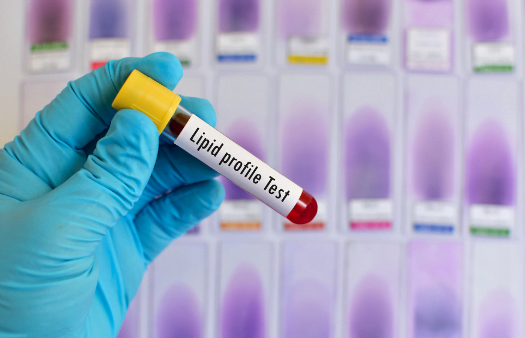Triglyceride Degradation Testing in Animal Feed
In recent years, there has been a growing emphasis on animal welfare and sustainability within the agricultural sector. One critical aspect of this focus is ensuring that feed additives are not only effective but also safe for consumption by animals. Triglycerides, as essential components of fats, play a significant role in providing energy and supporting various physiological functions. However, improper degradation or excessive levels of triglycerides can lead to health issues in livestock, which may subsequently impact the quality of meat and dairy products.
Triglyceride degradation testing is an indispensable tool for ensuring that animal feed meets strict quality standards. This process involves determining how quickly and thoroughly triglycerides are broken down into simpler compounds such as glycerol and fatty acids within specified conditions. The objective is to prevent rancidity, which not only affects the nutritional value but also poses risks related to microbial growth.
Our laboratory offers comprehensive triglyceride degradation testing services tailored specifically for animal feed manufacturers. Our team utilizes advanced analytical techniques including High Performance Liquid Chromatography (HPLC), Gas Chromatography-Mass Spectrometry (GC-MS), and Fourier Transform Infrared Spectroscopy (FTIR) to analyze samples accurately. These methods allow us to identify the extent of triglyceride breakdown under various storage conditions, thereby enabling manufacturers to optimize their production processes.
For instance, our laboratory conducted a study where we tested different types of soybean meal containing varying amounts of crude protein and fat content. The results showed that samples with higher lipid concentrations exhibited faster rates of degradation compared to those with lower lipid contents when exposed to elevated temperatures or prolonged periods of exposure to sunlight. Such insights are invaluable for formulating feeds that maintain optimal nutritional integrity throughout their shelf life.
The importance of triglyceride degradation testing extends beyond just ensuring product quality; it also plays a crucial role in promoting sustainable farming practices. By minimizing waste and maximizing resource efficiency, we contribute significantly towards reducing environmental impact associated with large-scale agricultural operations.
- Reduces food waste by improving ingredient utilization rates
- Promotes circular economy principles through efficient recycling of unused materials
- Decreases reliance on non-renewable resources such as petroleum-based additives
- Incorporates renewable energy sources into manufacturing processes where applicable
Why It Matters
The quality of animal feed directly influences the health and productivity of livestock, which in turn impacts meat and dairy products. Ensuring that triglycerides are properly degraded helps maintain nutritional value while preventing potential hazards such as rancidity and microbial contamination.
Moreover, improper degradation can lead to increased levels of free fatty acids and peroxides, both of which have been linked to oxidative stress in animals. Oxidative stress is associated with various health problems including heart disease, inflammation, and reduced fertility rates. By conducting regular triglyceride degradation testing, feed manufacturers can mitigate these risks and contribute positively towards animal welfare.
From a broader perspective, maintaining consistent quality standards across all stages of the supply chain promotes transparency and trust among consumers who value responsibly produced food products. This aligns with global trends toward sustainable agriculture practices aimed at addressing climate change challenges while ensuring equitable access to nutritious foods worldwide.
Applied Standards
The triglyceride degradation testing service offered by our laboratory complies with international standards such as ISO 6869, which provides guidelines for the determination of fat and oil content in feeds. Additionally, we adhere to specific protocols outlined in EN 14705 and ASTM D6723, both of which address methodologies related to lipid analysis.
These standards ensure that our testing procedures are rigorous, reliable, and consistent with industry best practices. Compliance with these guidelines not only enhances credibility but also facilitates seamless integration into global supply chains for clients operating across multiple regions.





